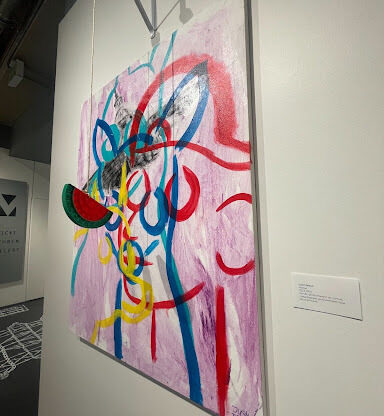This article is part five of a series that explores the history and importance of various buildings across the University of Denver campus in order to highlight the people, places and stories that have made the university what it is today.
Although a separate entity from the University of Denver, the terra cotta masonry of the Iliff School of Theology is an iconic cornerstone of campus, as well as one of the best theological schools in the state. With the purpose of cultivating “compassion and justice through courageous imagination,” the United Methodist Church seminary has played a fascinating historical role on campus.
The namesake of the institution, John Wesley Iliff, was a significant player in the early development of Colorado. Born in 1831 in eastern Ohio, Iliff was the son of a devout Methodist family. Following the call beckoning west, he began buying property and cattle around Colorado, which eventually earned him the moniker “the cattle king of the West.”
In 1870, he married Elizabeth Sarah Fraser, a devoted Methodist and sewing machine saleswoman from Canada. Although Iliff was not pious himself, he expressed desires to open a theological school in the west to train ministers so they would not have to travel to eastern schools. Unfortunately, Iliff never lived to see this dream, as he passed away from a kidney ailment at the young age of 47, leaving his huge inheritance to his wife.
A few years later, Elizabeth Iliff met Henry White Warren, a Methodist minister from Philadelphia who had come to Colorado on a mountain-climbing expedition. Warren had traveled and lectured across the world in the interest of the church, as well as helped to found the Gammon School of Theology, a predominantly Black institution in Atlanta. His lifelong interest in natural sciences and belief that all reality was God’s revelation formulated his open-minded approach to theology.
When Iliff and Warren were married in the Evans Chapel in 1883, the financial support and theological dream of the Iliff family, combined with Warren’s religious astuteness, were molded into one vision: a theological school to train ministers in the newly-developing west.
With a $100,000 contribution from Elizabeth, the building was constructed opposite DU’s University Hall to house the university’s theological school. Constructed in Richardsonian Romanesque style, the cornerstone was laid on June 8, 1892, and reads “Christ Jesus Himself Being the Chief CornerStone.”
Facing financial issues, the Iliff School of Theology closed in 1900, and reopened in 1910 as a separate entity from DU, although the Warrens continued to be strong supporters and benefactors for the university and Denver as a whole. Upon its reopening, the school continued to thrive under the direction of various presidents and professors who have shaped Iliff into the forefront of theological education it is today.
However, Iliff, just like DU, has had to reckon with troubling moments in its history. For example, one year after Iliff’s cornerstone was laid, a benefactor gave the school a book of Christian theology bound in the skin of a Native American man, killed by a Quaker settler in western Virginia. The book was displayed in the school’s library for 80 years until 1972 when students demanded for it to be removed.
The cover of human skin was taken off the book and given to the American Indian Movement of Colorado, to give the remains a proper burial. Those involved with the burial were required to sign non-disclosure agreements and the faculty at Iliff were told not to discuss the matter. The book remains stored in a safe at the Iliff library.
When Tink Tinker, a member of the Osage nation and professor at Iliff, heard about the book, his first reactions were “nausea” and “revulsion.” He resolved to study and publicize the issue, so as not to let the Iliff community forget the atrocity that lay in their basement. In a 2020 interview, Tinker said that he felt he could “be a burr in Iliff’s saddle” and show that the book’s violence and hate were not a thing of the past.
In recent years, several conferences between the Iliff community and Indigenous groups have addressed the book’s implications, actions that Tinker calls “a good first step.” Tinker himself has published several academic papers on the book and Iliff’s relations with Indigenous communities.
In addition to making amends with Indigenous communities, Iliff has hosted a number of high-profile leaders over the years, including former secretary of state Madeline Albright and the Little Rock Nine, who were celebrated in a series of events entitled “A Celebration of Courage.”
In 1981, Iliff and DU launched a new phase in their partnership with the inauguration of the Joint Doctoral Program in the Study of Religion, or the JDP. Drawing on the intellectual wealth of both schools, the JDP provides its students with a broad base for intellectual activity.
DU students are able to request books from the Iliff library through the Anderson Academic Commons’ affiliate library program. The Iliff library holds approximately 200,000 monographs, 60,700 microforms, 15,000 bound journal volumes and more than 10,000 ebooks dedicated to religion and its study.
The Iliff School of Theology has a wealth of resources and history, and its past is intimately tied with many of the issues that DU has faced over its long past. While technically disconnected from DU, it remains an integral asset for “activists, servant leaders and innovators in diverse religious, secular and academic communities” across the city and the state.











